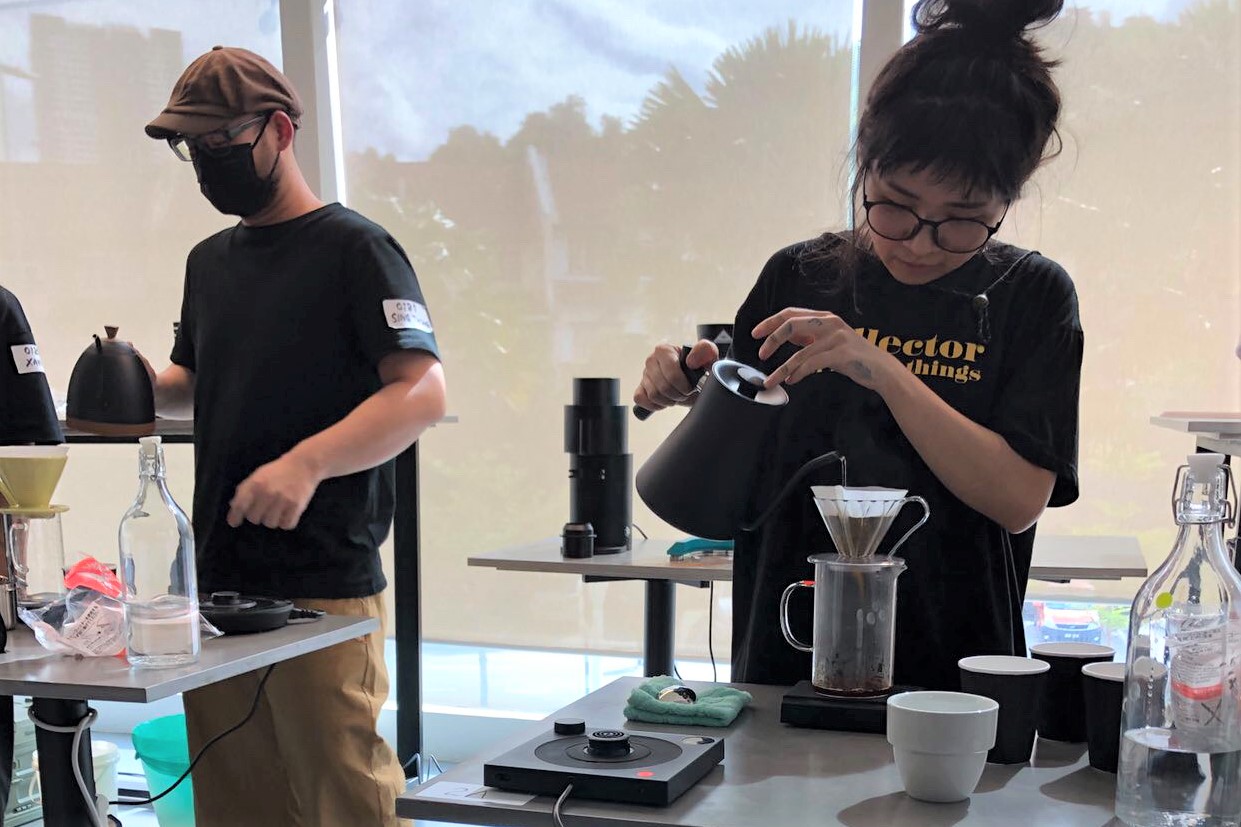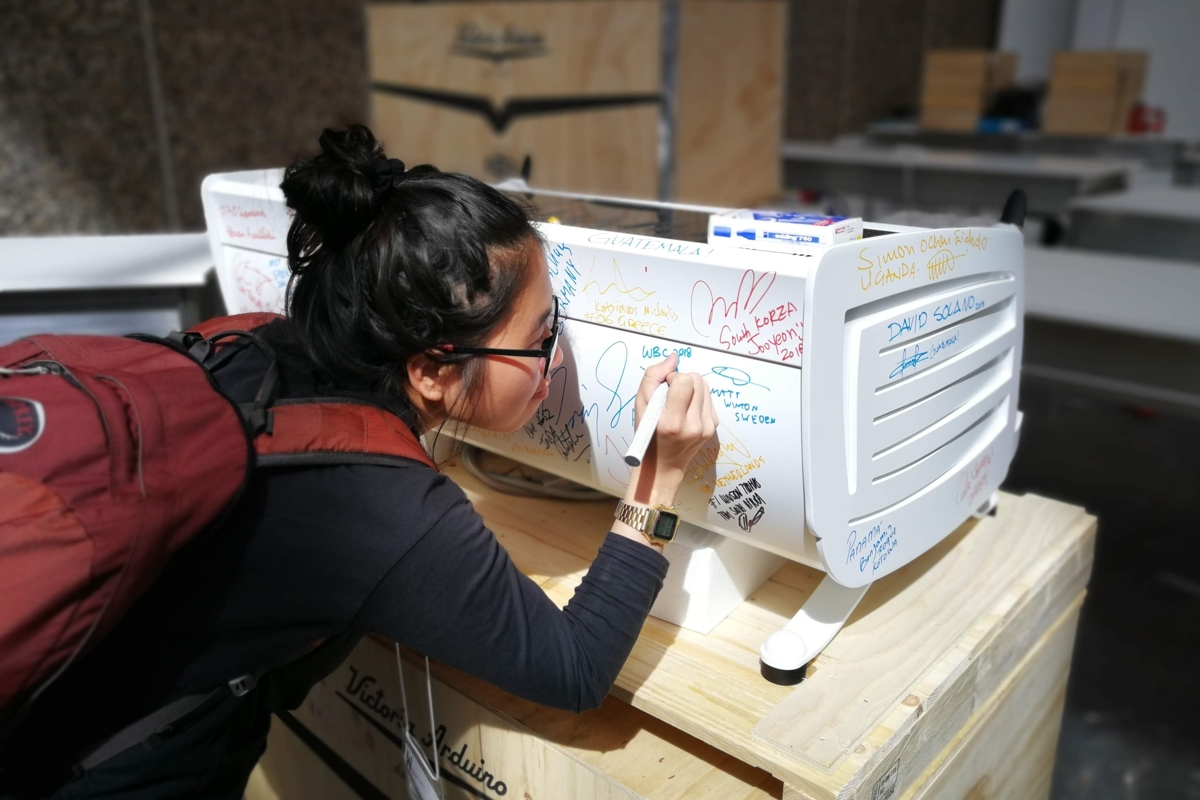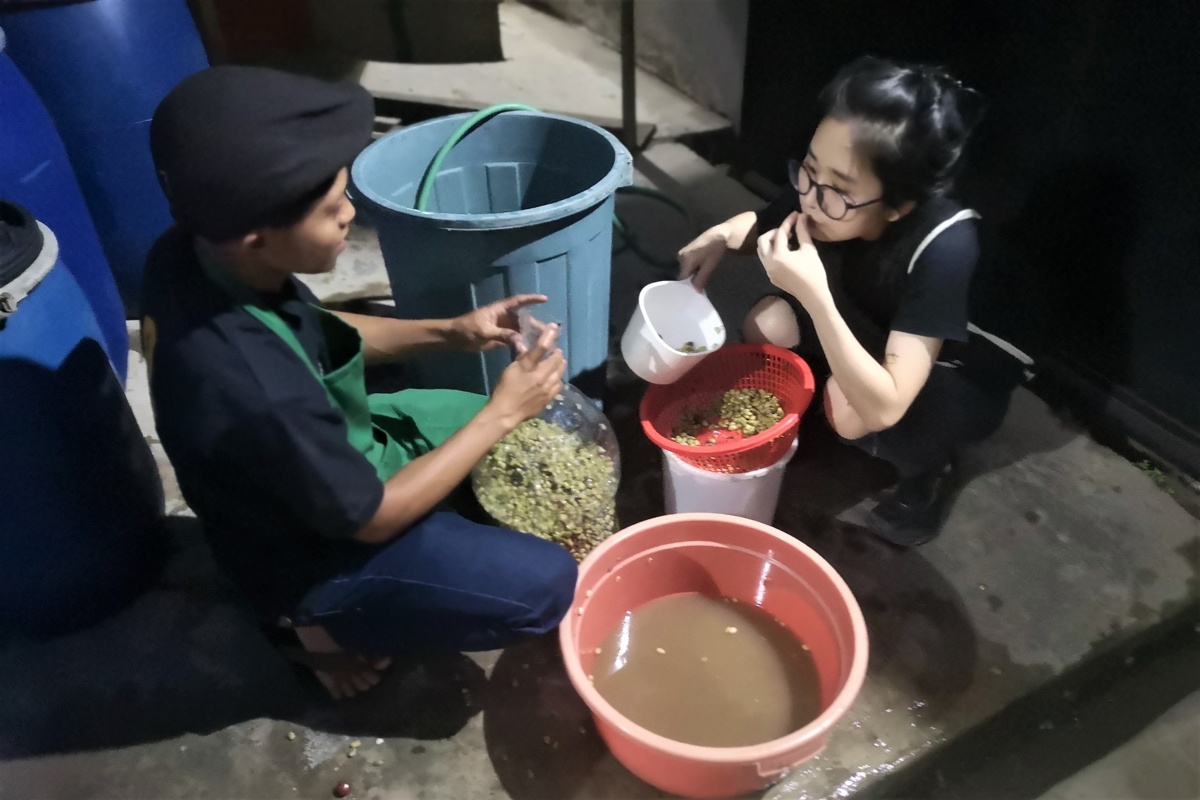A Caffeinated Career Journey
By Beh May Ting
FEATURE
COFFEE BREWING IN the past would conjure images of elderly men clad in white Pagoda singlets at the rear section of kopitiams pouring cups of dark fragrant liquid through long stocking-like sieves from big tin mugs. While this scenario is still a common sight in Penang, coffee making in this day and age has become much more sophisticated.
The café culture in Penang, which took off in the late 2000s has grown in tandem with the global coffee industry. Baristas are one of its major pushers, being intermediaries between the coffee industry and consumers of the café culture.
The Barista
The café culture has captured the imagination of urban society today, especially among the young. Although too untypical to be considered a professional career when compared to other vocations in Malaysia, a significant number of young people are becoming baristas in cafés in George Town and at coffee-related events. Being a barista is glamorous because it is one of the few jobs in the food and beverage industry with competition opportunities.
Hayley originally studied mass communications and accounting. She decided to embark on the coffee journey after working as an accountant in Singapore for several years. To make ends meet, she worked part-time as a barista. Her interest in it grew, and soon, she realised she wanted to take her passion for coffee-making more seriously. It led to her enrolling in an eight-month business and coffee science course. The choice between staying on as an accountant or becoming a barista soon became clear – being a barista allows her to experience different challenges everyday, something she enjoys greatly. Today, Hayley works as a barista at Nylon Coffee Roaster in Singapore and a coffee consultant at China House in Penang. As a consultant, she advises her employer on the latest trends in the F&B industry and on keeping their menu fresh and ensuring the quality is up to par at all times. She is also a judge at international coffee championships.

Being in a constantly evolving industry excites Hayley; she gets to hone her creativity and meet like-minded people. It was no holds barred for her when she took the plunge and travelled to England, Thailand, Korea, Indonesia and Australia for extended periods of time to immerse herself in the specialty coffee ecosystem by volunteering in coffee events and living in cities known for their café culture.
Bridging Cup to Consumer
Apart from the technical skills that a barista needs to learn and endlessly practise, soft skills such as interpersonal interactions are also crucial. The job is, after all, in the service industry. For Hayley, and ideally, for baristas in general, there should not be any judgement on the customers’ preferences on how they want their drinks made. As long as the customer likes how their coffee tastes, it should not matter how high the type of coffee scores on the international scale. To her, a job well done is when the coffee she brews brightens her customer’s day.
A barista is required to make the customer feel as comfortable as possible, a social skill that comes with a host of experiences. Too little interaction and the barista might come off snobbish, too much interaction and they might overwhelm the customer. Therefore, it is crucial for baristas to be able to read situations and people. It is something Hayley feels is imperative to being a good barista, since they can be thought of as agents who introduce and educate consumers about coffee.

Being an Outlier
Initially, Hayley’s parents had reservations about her switching her career path. Their apprehension came from a place of concern, as they felt that being an accountant is a stable career that leads to financial security. However, after some convincing and seeing her passion for her newly chosen career path, they accepted her decision and fully supported her. In fact, they supported her where they could during her travels, which sometimes took up to half a year in cities like Melbourne and countries around Europe.
As an impromptu yet decisive person, Hayley often finds herself on interesting adventures while learning to be a barista. For instance, she was busking in order to sustain her backpacking travels in Australia, housekeeping and washing 20 toilets a day during her work-and-exchange programme in Korea, and mainly camped in Europe for three months to stretch her time there.
She also used most of her money and time abroad to visit cafés and meet people in the coffee industry. Fortunately, those she met were often passionate about coffee and are friendly. Though she may not know anyone in the countries she visits, she remained optimistic about making friends along the way.
The most common question she gets when travelling is if it is dangerous to travel alone as a female, to which she replies, “Yes, adventures are dangerous, but routine is lethal.”
However, she believes that her biggest personal achievement is influencing her father, a tea drinker, and the rest of her family to drink the unadulterated coffee she brews; that is, without milk or sugar. It is an especially proud accomplishment, given that the traditional Malaysian coffee is either sweetened or laced with milk.

Admittedly, the journey to being where she is today has been a long one but she is certain that the status of baristas in Malaysia will be elevated to be on par with other professions, especially since the nation’s coffee scene has been advancing rapidly.
For those considering a career as a barista, she warns them to expect people to not see their chosen career path as a professional vocation; sometimes even, their parents would not be able to comprehend their choices. It will take a lot of perseverance to go down this path – but take heart, with the coffee industry in Malaysia growing rapidly, being a barista can open many doors to other opportunities.
Beh May Ting

is an urban anthropologist and a senior analyst in Penang Institute. She draws professional and personal inspirations from the finer things in life.



